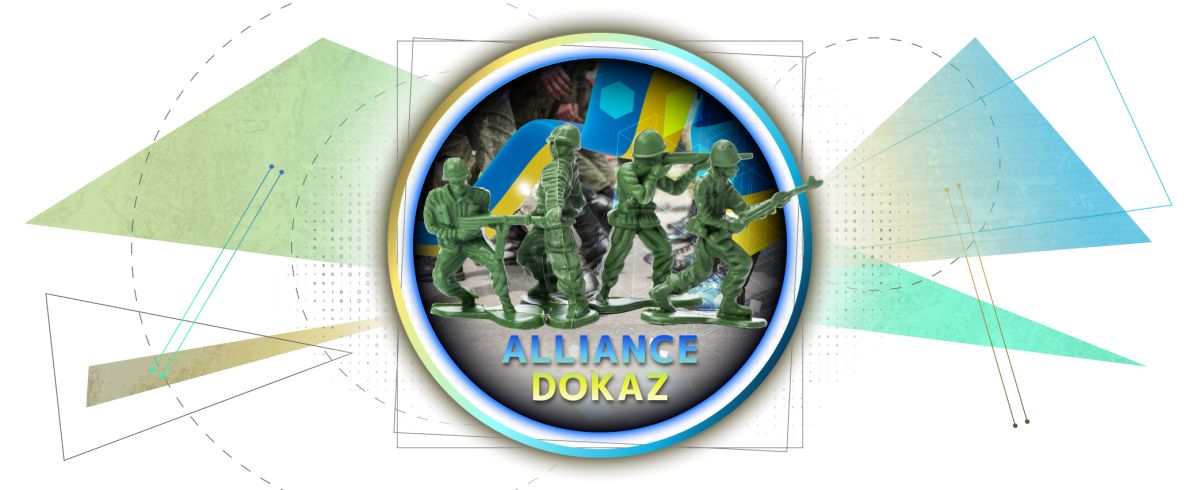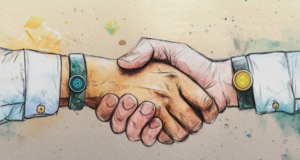Dokaz stores war crimes on blockchain

The Dokaz Alliance project aims to assist in prosecuting russians who commit war crimes in Ukraine.
On this page
Dokaz Alliance was founded by Starling Lab, the world's first academic research center. Its staff is researching how decentralized technologies can transform human rights.
A team of specialists who had previously worked in Syria documenting possible war crimes and gathering testimonies from Holocaust survivors quickly reassembled. Now these enthusiasts are focusing their efforts on the war in Ukraine.
Jonathan Dotan, the founding director of the Starling Lab and researcher at the Center for Blockchain Research at Stanford University, said that his employees collect all photo and video evidence relating to the bombing of cities and the killing of civilians:
“The evidence of all of this … was covered in Telegram and other online sources. Many of those sources, however, don't last. They're ephemeral. They're taken down for various reasons. That's where blockchain technology, which underlies the new iteration of the internet known as Web3, comes in. All of this technology is premised on the idea that you can create immutable records, lasting records”.
Project Dokaz gathers, classifies, and “packages” evidence of war crimes as it appears online using a multi-step process, then enlists the help of independent human experts to confirm its veracity.
The project collects and stores information, including metadata, using the web scraping technology. After authenticating the source of the information, timestamps and authorship are generated. The completed file is sent to the distributed registry's archive.
Several Web3 protocols then encrypt and register it.
Project staff are on duty around the clock. They monitor social networks, instant messengers, websites, and video surveillance cameras that have not yet been disabled. Furthermore, they are directly sent a video recording of the outcomes of russian atrocities from smartphones and drones.
Jonathan Dotan is convinced that the power of cryptography will assist in conducting a full audit of all the terrible human rights violations that Ukraine experienced during the war. Putting information on the blockchain allows it to be stored unchanged for hundreds of years, and no one will be able to falsify the undeniable evidence of war crimes. Furthermore, such a solution will help in the fight against russian propaganda, disinformation, and fake news, which has spread throughout the global media space.
After the war, all of the materials will end up in The Hague, where they will serve as the most conclusive proof of russian criminals' guilt.
The project is financed by crypto charities.
Resources, consultations, and equipment have already been provided by:
- Filecoin Foundation
- Avalanche
- Crypto Council for Innovation
- Nodle Network
- Numbers Protocol
- Ukraine DAO
Metadata for each piece of evidence was registered using L1 protocols including Avalanche, Hedera, Flow, Polkadot, Bitcoin, and Ethereum. Filecoin and Storj cloud storage were used to store the files cryptographically. File storage and access by investigators are implemented using non-fungible tokens.
The use of such different systems for the sole purpose of achieving punishment for criminals opens up new possibilities for Web3.
The cryptographic dossier on the Kharkiv crimes has already been transferred to the International Criminal Court in the Netherlands.
The content on The Coinomist is for informational purposes only and should not be interpreted as financial advice. While we strive to provide accurate and up-to-date information, we do not guarantee the accuracy, completeness, or reliability of any content. Neither we accept liability for any errors or omissions in the information provided or for any financial losses incurred as a result of relying on this information. Actions based on this content are at your own risk. Always do your own research and consult a professional. See our Terms, Privacy Policy, and Disclaimers for more details.

























